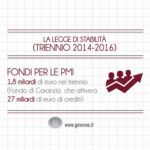The New York Times reported that a growing number of tourists are cancelling their travel plans to the United States or reconsidering them, citing a hostile climate in politics, new visa restrictions and concerns about arbitrary detentions by immigration checkpoints.
The trend is a result of the Trump administration’s policies, which some foreign officials believe will destabilize trade and diplomatic relations.
The proposed travel ban, which could restrict citizens of up to 43 countries, including Belarus, Cambodia, St. Lucia, has further fueled unease among potential tourists.
“So many Americans want to escape the toxic and tense atmosphere at home.” Why would anyone want a visit, especially now with all the arbitrary immigration detentions? asked Mallory Henderson.
Economic impact of declining tourism
Travel industry in the US, which is still struggling to recover from pandemic, now faces new challenges.
Even before the change of administration, factors such as a strong currency and long visa wait times kept the number of inbound visitors below pre-pandemic numbers.
According to the US Travel Association (USTA), foreign visitor spending will not fully recover until at least 2026. This target may be harder to reach given recent policy changes.
Travel experts and research companies are lowering their forecasts.
Tourism Economics, who had originally projected a 9% increase in inbound travel for this year, revised their estimate in February and now predicts a 5.1% decrease.
Travel spending in Canada has dropped by an estimated $18 billion, a result of new US tariffs.
In February, Canadian travel to the US dropped by 24% compared to the previous year. Airlines such as United and Delta were forced to reduce their route frequency.
Adam Sacks is the president of Tourism Economics. He said that a combination of factors under the Trump administration, including geopolitical friction over trade and national security, charged rhetoric, and adversarial posture, will likely sustain a negative sentiment shift.
Some airlines have already reduced their financial forecasts, citing a decreased demand.
American Airlines, Delta, and others have acknowledged a weaker travel sector, with flight reductions to Canadian destinations indicating a wider uncertainty in the travel industry.
Canada, Germany and the UK issue travel warnings for the US
In response to increased border security and immigration enforcement, several countries, including the UK and Canada, updated their travel advice for the United States.
Foreign visitors are being warned that a valid visa, or the ability to qualify for a waiver of visa requirements does not guarantee their entry into the United States. Detentions have also increased at US ports.
Recent incidents have heightened concerns, such as a French scientist’s reported refusal to cross the US border when officials searched his phone looking for critical opinions of the Trump administration.
The US authorities have denied that there were any political motives behind the decision. However, the case has fueled further apprehensions regarding the unpredictable nature of US immigration policy.
European travellers also rethink their plans due to Trump’s “sabotage”.
Although Canada has been the most affected market, European travellers have also had to rethink their plans.
The preliminary data from the US National Travel and Tourism Office indicates a 1% drop in Western European arrivals for February, a stark contrast to the 14% rise recorded during the same period last.
Travel operators in Europe have noted that, while mass cancellations of flights has not yet occurred in Europe, interest in alternative destination is increasing.
Some people’s decision to cancel US travel is not just a matter of policy, but also a matter of principle.
Christoph Bartel, who is a German resident in Norway, had planned to visit Arizona’s national park this summer, but cancelled it after the Trump administration decided to fire national park workers and roll back environmental regulations.
Bartel said, “It doesn’t feel right to support American economy when President Obama is causing such sabotage.” “We’ll go to Canada or Mexico.”
Britain, a major source of US visitors, is also experiencing a split in the travel behavior.
Some travellers are unaffected by the cost of travel, while others actively search for alternatives.
Alan Wilson, the managing director of UK-based Bon Voyage Travel & Tours noted a 5% decline in US bookings for this year.
The cost factors, such as high hotel rates and tipping expectations further discourage British tourists.
Wilson said that British travellers “absolutely hate the 20% tipping and the way America always has their hand out for the next bonus.” “They would prefer to pay the money up front.”
US tourism hubs prepare for slowdown
Small travel businesses are already feeling it in major destinations such as New York, California and Florida.
Luke Miller, the owner of Real New York Tours reported widespread cancellations from Canadian visitors.
“I had 20 busloads full of seniors cancel their tours.” Miller’s small business has suffered losses of thousands of dollars. Bookings have declined as far as the winter holidays.
Tourism boards in New York, California and other states have increased their marketing efforts to reassure international visitors.
Visit California revised their 2025 visitor spending forecasts downwards to $160 billion dollars from $166 billion dollars, taking into account the slowdown of international arrivals as well as the impact of the January wildfires.
Caroline Beteta of Visit California emphasized the continued appeal of the state, saying: “Thanks in part to California’s strong branding on the global stage international visitors continue to show strong affinity for the Golden State.”
New York City, which is facing similar challenges, promotes budget-friendly travel in order to encourage more visitors.
“This is a great opportunity to highlight other boroughs outside Manhattan that offer award winning culinary, arts and cultural experiences,” said Julie Coker.
Despite all of these efforts, the industry remains cautious. Miller, of Real New York Tours, fears that his business will not survive the recession without a rebound in bookings.
He said, “We are the ones who are most likely to be hit and may not survive.”
This post Turning Away: How Trump’s policies are causing a drop in international tourism to the US could be modified as new information becomes available
This site is for entertainment only. Click here to read more






